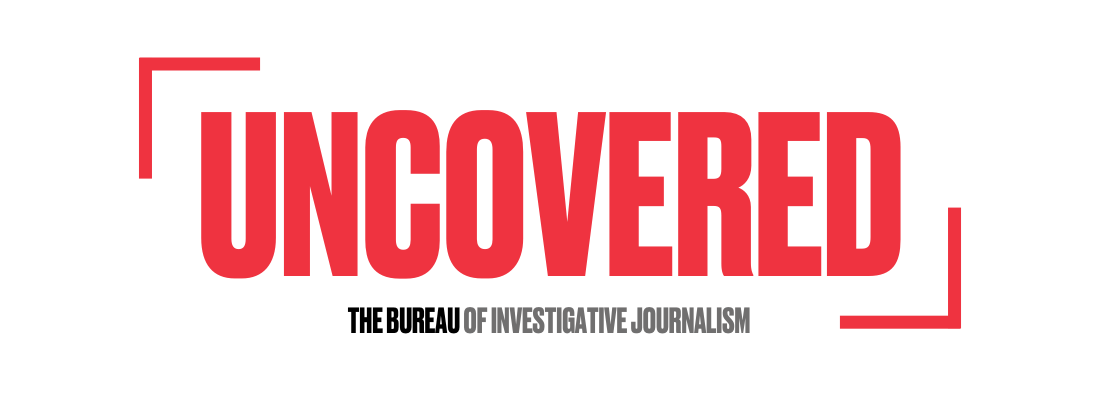
“Inconsistent and lax bank supervision has crashed our economy before.”
Hi {{ First name | there }},
The world’s biggest bank dodged rules meant to keep the global economy intact. Our exposé has prompted outrage from senior figures, including US Senator Elizabeth Warren, who’s kept a close eye on whether banks are sticking to the rules.
The 2008 financial crisis broke the world into the chaotic and fairly frightening place we now live. Global regulators promised to force banks to become more responsible. They were supposed to hold enough capital to ensure that if their risky investments went poof, they wouldn’t collapse – again.
But Josephine Moulds – with the help of our band of trusty TBIJ supporters – revealed that JPMorgan was flouting these rules by misreporting its trading activities. The details are pretty complicated, but I’ll try to put it simply. Major banks are required to report all the bets they make on stocks going up and all the bets they make on the same stocks going down, separately. If they just subtract one from the other, it looks like their trading activity is much smaller than it actually is.
However, that is exactly what JPMorgan was doing, according to a whistleblower inside the bank. They raised the issue with the bank’s board, the US financial regulator, and the Federal Reserve – the US central bank.
It’s understandable why banks would want to do this. JPMorgan could generate $2bn more in post-tax profits per year, because rather than holding extra capital, it could put that money to work, according to the whistleblower.
The Fed appears to have known about this all along, turning a blind eye. So you have the institution tasked with overseeing the financial system putting its head in the sand when the biggest bank in the country is breaking rules meant to prevent another meltdown.
A little worrying.
“I am deeply concerned that the Fed may be turning a blind eye as JPMorgan and other Wall Street banks cook their books and skim off funds meant to prevent a global economic collapse,” Elizabeth Warren told TBIJ and the International Consortium of Investigative Journalists, which co-reported this investigation. “Inconsistent and lax bank supervision has crashed our economy before.”
Thank you for giving us the support to help us report this kind of essential story. With more help, we can stay on this story and make sure our financial system is protected.
JPMorgan told TBIJ that the bank fully complies with all capital regulations and is confident in its methodology, which “is fully transparent to our regulators”. It didn’t say whether the approach detailed by the whistleblower accurately reflected its policy.
A Federal Reserve spokesperson did not answer TBIJ’s question on whether it allowed banks to interpret the rules in this way. Instead, they pointed to the higher amounts of additional capital that large US banks must hold and said the global framework the US rules are based on is non-binding.
A spokesperson for the Financial Services Forum, which represents the largest banks in the US, said: “[The largest US banks] face significantly higher capital requirements than other banks domestically and globally, with regular, mandatory data submissions subject to rigorous oversight.”
So, no denial from anyone then.
Factchecked!
Each week we reveal a fascinating fact from our reporting…
Did you know?
The Windrush generation got its name from HMT Empire – one of the first boats to carry migrants from the West Indies to the UK.
Find out more
The Windrush generation became the name for thousands of Caribbean-born Brits who came to the UK in the 1950s and 1960s. Many had arrived as children in the waves of migration from Commonwealth countries that the UK encouraged after the Second World War.
Decades later, the UK government demanded that these people prove their right to stay – leading to tens of thousands of people being wrongly detained, threatened and, in some cases, even deported.
It wasn’t until one journalist started relentlessly investigating the issue that the scandal came to light.
Read more about it in this edition of The Spark – our ‘good news’ newsletter dedicated to the stories that have changed the world. Sign up here.
A win for justice, transparency, accountability, and journalism
TBIJ’s Hannah Summers, alongside her fellow reporter Louise Tickle, won a major decision in the Court of Appeal yesterday.
Hannah and Louise had followed the horrific case of 10-year-old Sara Sharif’s murder and were digging into previous family court cases about her care.
Sara’s father and stepmother have now been jailed for life for her murder, but there were previous accusations of child abuse against Sara’s parents that were looked into by the courts.
A judge, Mr Justice Williams, last year barred journalists from identifying the judges in the previous cases, apparently to protect them from attacks of any kind. But that runs completely against the principles of open justice, so Hannah and Louise challenged the ruling.
Hannah is the UK’s only full-time family courts reporter. She’s close to publishing another remarkable investigation, unearthing some of the gross injustices that put vulnerable children at grave risk. Her reporting is bringing accountability – thank you for supporting it.
The Court of Appeal agreed with the journalists on all points. Judges know they are public figures and go into the job accepting that, the court said in its judgment, adding some pretty damning remarks about Williams.
“The mistake the judge made was to think that he could properly trawl through his own experiences to create a case for anonymising the judges,” the court said. “He should not have done so. Courts operate on the basis of the law and the evidence, not on the basis of judicial speculation and anecdote, even if it is legitimate to take judicial notice of some matters. In short, the judge’s judgment demonstrates, to put the matter moderately, that he got carried away.”
Williams had also attacked Hannah and Louise, accusing them (wrongly) of inaccurate reporting. The court said Williams’s comments were “inappropriate and unfair”, and he “lost sight of the importance of press scrutiny to the integrity of the justice system”. And with that it handed the case over to another judge.
Sometimes journalists need to get involved in court cases themselves. It’s not easy, but Hannah is getting used to it and generally comes out on top.
We live in a democracy, where free reporting is essential.
Speaking of which, I hope you remember the incredible work TBIJ did in uncovering real world cases of the rich and powerful squashing genuine, important stories through legal threats.
In November, a group of MPs from several parties got up in Parliament and shared the stories we had uncovered. People speaking truth to power needed to be protected, the MPs said, calling for stronger laws.
Now, the brilliant team behind the investigation can share the story of how they did it. It starts with Eleanor Rose, who leads the team, sitting in a job interview.
Stay tuned for next week, which is packed with big stories.
What we’ve been reading
🔴 Crédit Agricole, Europe’s third largest bank, has significant holdings in a gas company destroying the Peruvian Amazon disclose.ngo
🔴 Londoners using Lime bikes have ended up with severe leg fractures after accidents – and they blame the bike’s design londoncentric.media
🔴 The family of a murdered mother say she was let down by the state, the police and the media guardian.com
Thanks,
Franz
Franz Wild
Editor





